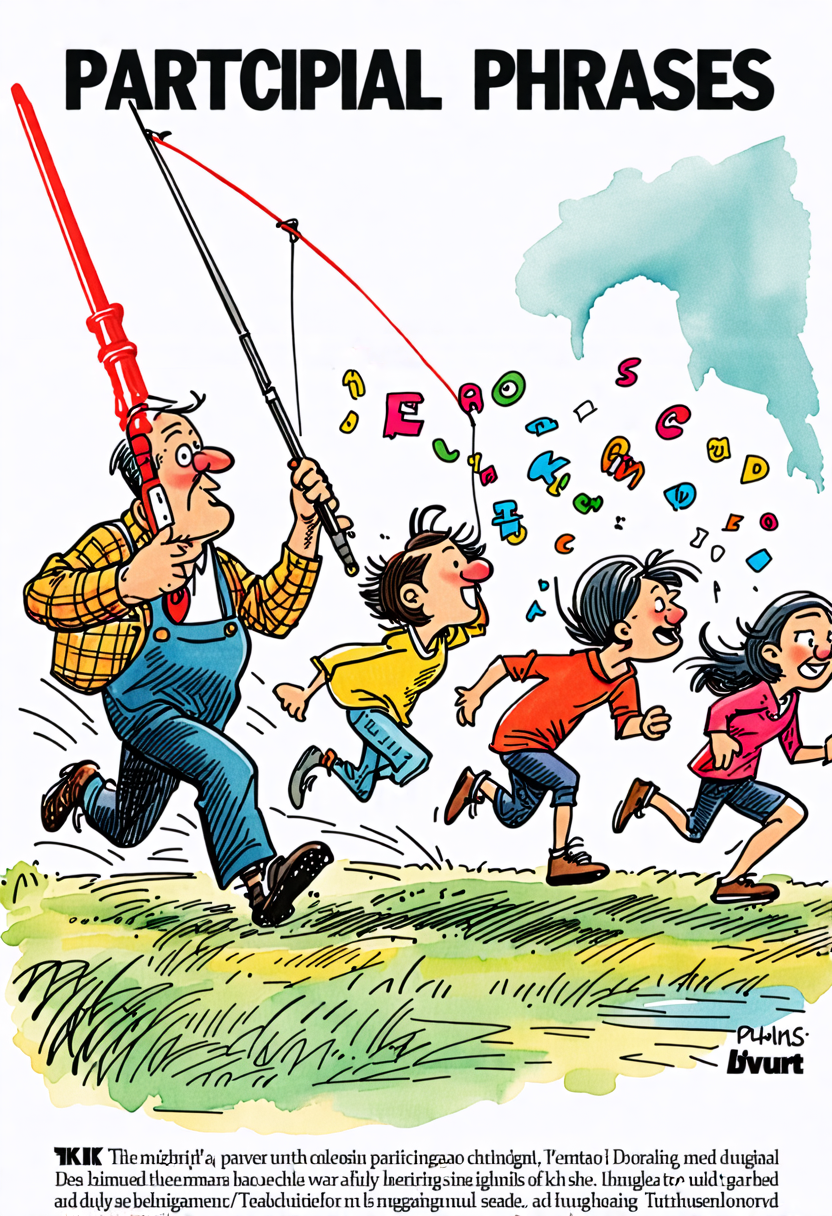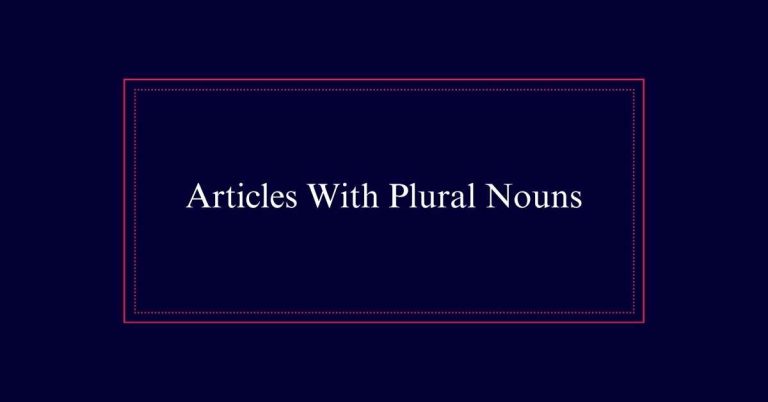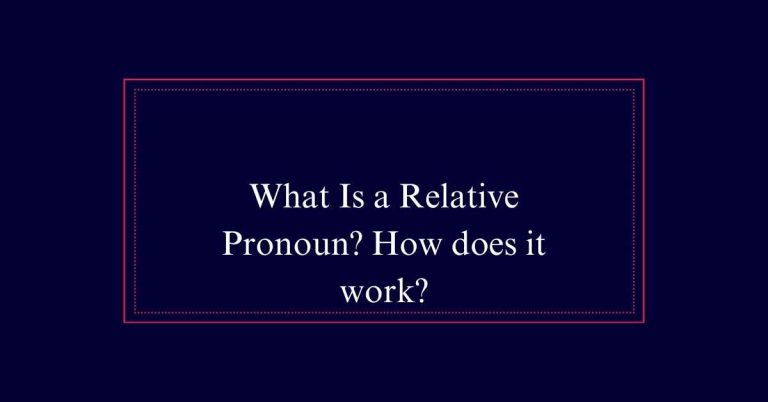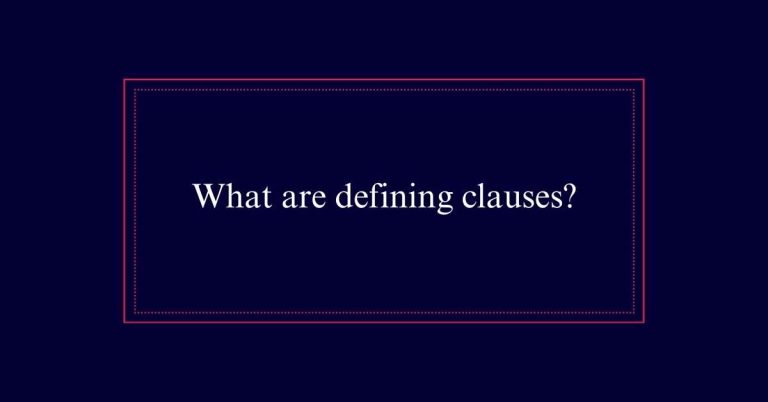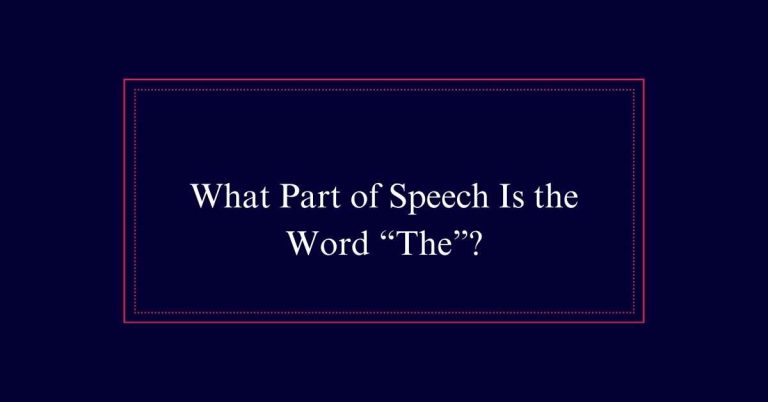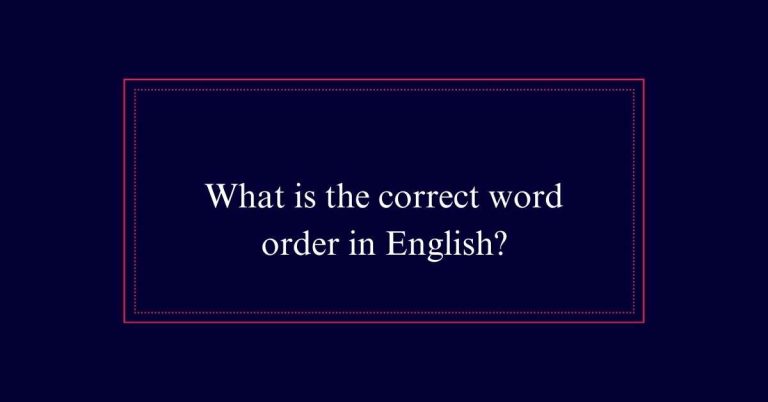How Do Participial Phrases Work?
Participial phrases provide descriptive details about nouns, enhancing the richness of sentences. They begin with a participle (present, past, or perfect) and include complements and modifiers. For example, ‘running quickly,’ ‘broken into pieces,’ and ‘fascinated by the story’ describe the noun they modify.
These phrases must be placed close to the noun for clarity. Proper use avoids repetition, enriches readability, and maintains sentence flow. A common mistake is misplacing these phrases, which can cause confusion.
Definition of Participial Phrases
Participial phrases are groups of words that begin with a participle and function as adjectives to describe a noun. These phrases add descriptive detail to a sentence by modifying nouns.
A participial phrase typically includes the participle itself and any complements or modifiers. For example, in the phrase ‘running through the park,’ ‘running’ is the participle, and ‘through the park’ provides additional context.
Participial phrases can enhance the meaning of a sentence by offering more information about the noun they modify. They are versatile and can describe actions that are ongoing, completed, or received by the noun.
Characteristics of Participial Phrases
Beyond defining participial phrases, it is important to understand their key characteristics to use them effectively in sentences.
Participial phrases act as adjectives, providing additional details about the nouns they modify. These phrases start with either a present or past participle. For example, ‘running quickly’ or ‘broken by the fall.’ They can include other words like objects, modifiers, or prepositional phrases.
Positioned at the beginning, middle, or end of a sentence, they add depth and clarity. Importantly, participial phrases should be placed close to the noun they describe to avoid confusion.
Types of Participial Phrases
There are three main types of participial phrases: present, past, and perfect participle phrases.
Present participle phrases use the present participle form of a verb (ending in -ing) to describe ongoing actions. For example, ‘Running through the park, she felt free’ describes an action happening at the same time as the main verb.
Past participle phrases utilize the past participle form (often ending in -ed, -en, or -t) to describe completed actions or states. An example is, ‘Exhausted from the hike, he sat down.’
Perfect participle phrases employ the perfect participle (having + past participle) to indicate actions completed before the main action. For instance, ‘Having finished the report, she relaxed.’
Present Participle Phrases
Present participle phrases employ the present participle form of a verb, ending in -ing, to describe ongoing or simultaneous actions.
These phrases provide additional information about a noun, often indicating an action that is happening at the same time as the main verb.
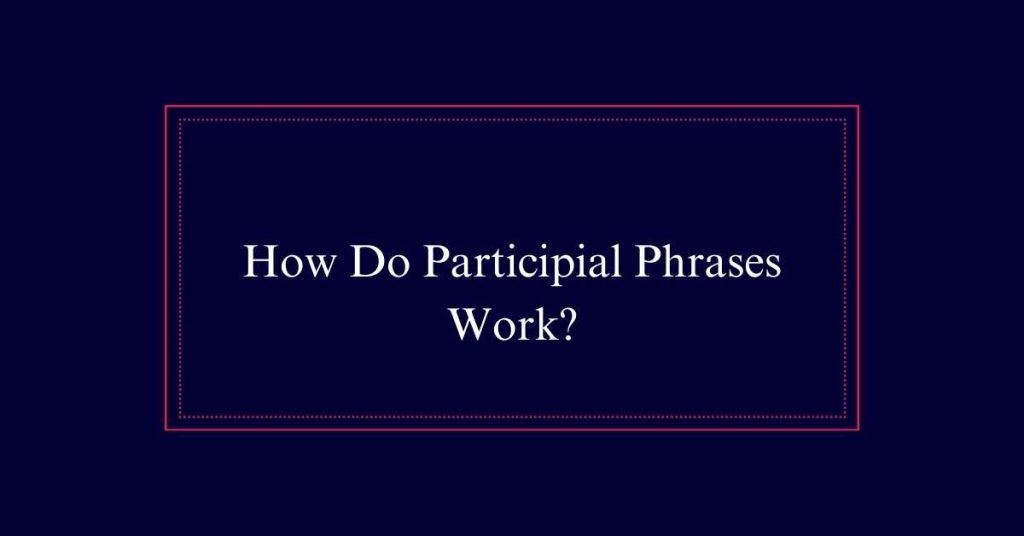
For instance, in the sentence ‘Running down the street, the boy looked excited,’ the phrase ‘Running down the street’ describes the boy’s action.
Present participle phrases can also add vividness to writing by illustrating the scenario. They are versatile and can be placed at the beginning, middle, or end of a sentence.
Past Participle Phrases
Past participle phrases use the past participle form of a verb to describe actions received by a noun. These phrases often modify the noun by indicating an action that has already happened to it.
For example, in ‘The cake, baked by Mary, was delicious,’ the phrase ‘baked by Mary’ describes the cake. Past participles typically end in -ed, -d, -t, -en, or -n, like ‘baked,’ ‘burnt,‘ or ‘broken.’ They can provide essential details and make sentences more informative and engaging.
When placed correctly, past participle phrases enhance clarity and precision, contributing to the overall flow of the narrative. They are versatile tools in writing, enriching descriptions and adding depth to the context.
Perfect Participle Phrases
Perfect participle phrases describe actions completed before the main verb and often use the auxiliary verb ‘having’. These phrases provide context for actions that occurred earlier.
For example, in the sentence ‘Having finished his homework, John went out to play,’ the phrase ‘having finished his homework’ indicates that John completed his homework before going out.
Perfect participle phrases start with ‘having’ followed by a past participle. They are useful for showing sequence and causality.
Consider, ‘Having been warned about the storm, they canceled the picnic.’ Here, the warning preceded the cancellation.
Perfect participle phrases improve sentence flow and clarity by showing the order of actions. They are a crucial tool for precise communication.
Participial Phrases Vs. Gerund Phrases
Understanding the distinction between participial phrases and gerund phrases is essential for mastering their proper usage in sentences. Participial phrases act as adjectives, modifying nouns by providing additional descriptive details. For example, in ‘Running through the park, she felt invigorated,’ the phrase describes the noun ‘she.’
In contrast, gerund phrases function as nouns and can serve as the subject, object, or complement in a sentence. For instance, ‘Running through the park is her favorite activity’ uses ‘running through the park’ as the subject.
Identifying the role the phrase plays helps distinguish between the two. Participial phrases describe nouns, while gerund phrases represent actions or concepts as nouns. Understanding these differences enhances sentence clarity and precision.
Function of Participial Phrases
Building on our understanding of how participial phrases differ from gerund phrases, we now focus on the function of participial phrases in sentences. Participial phrases primarily act as adjectives. They provide additional details about a noun or pronoun, enhancing the sentence’s descriptive quality. By using verb forms, these phrases convey actions or states linked to the noun. Participial phrases can appear at the beginning, middle, or end of a sentence, offering flexibility in sentence structure.
Here is a table summarizing their functions:
| Function | Example |
|---|---|
| Act as adjectives | “The cat, purring softly, slept.” |
| Describe actions/states | “The book, written in 1920, is valuable.” |
| Enhance descriptive detail | “Running late, she missed the bus.” |
Common Examples
Common examples of participial phrases can help illustrate their various uses and enhance understanding. These phrases often add depth to sentences by describing nouns in more detail. Here are some examples:
- Present Participle Phrase: *Running through the park, the dog enjoyed the fresh air.*
- Past Participle Phrase: *Exhausted from the journey, the travelers finally arrived at their destination.*
- Perfect Participle Phrase: *Having finished his homework, Tom went out to play.*
- Present Participle Phrase: *Singing loudly, the choir captivated the audience.*
- Past Participle Phrase: *Broken by the storm, the tree lay across the road.*
Can you provide an example of a participial phrase and explain its role in a sentence?
A participial phrase is a group of words consisting of a present or past participle and any modifiers, objects, or complements. It functions as an adjective, often providing additional information about a noun or pronoun. “Running through the park,” is a participial phrase that adds details to the subject. For more meaning and examples of phrases, consult a grammar resource.
Grammatical Role
Participial phrases play a significant grammatical role by acting as adjectives that modify nouns, thereby enriching sentence detail and context. These phrases provide additional information about the noun, making the sentence more vivid and informative.
A participial phrase starts with a present or past participle and can include objects, modifiers, and complements. For example, in the sentence ‘The book, written by an expert, is very informative,’ the phrase ‘written by an expert’ modifies ‘book.’ This enhances the reader’s understanding of which book is being discussed.
Participial phrases are versatile and can be placed at different positions in a sentence, but they should always be close to the noun they modify to avoid confusion.
